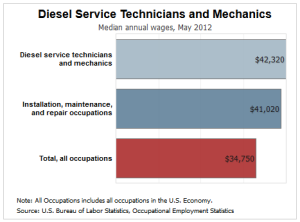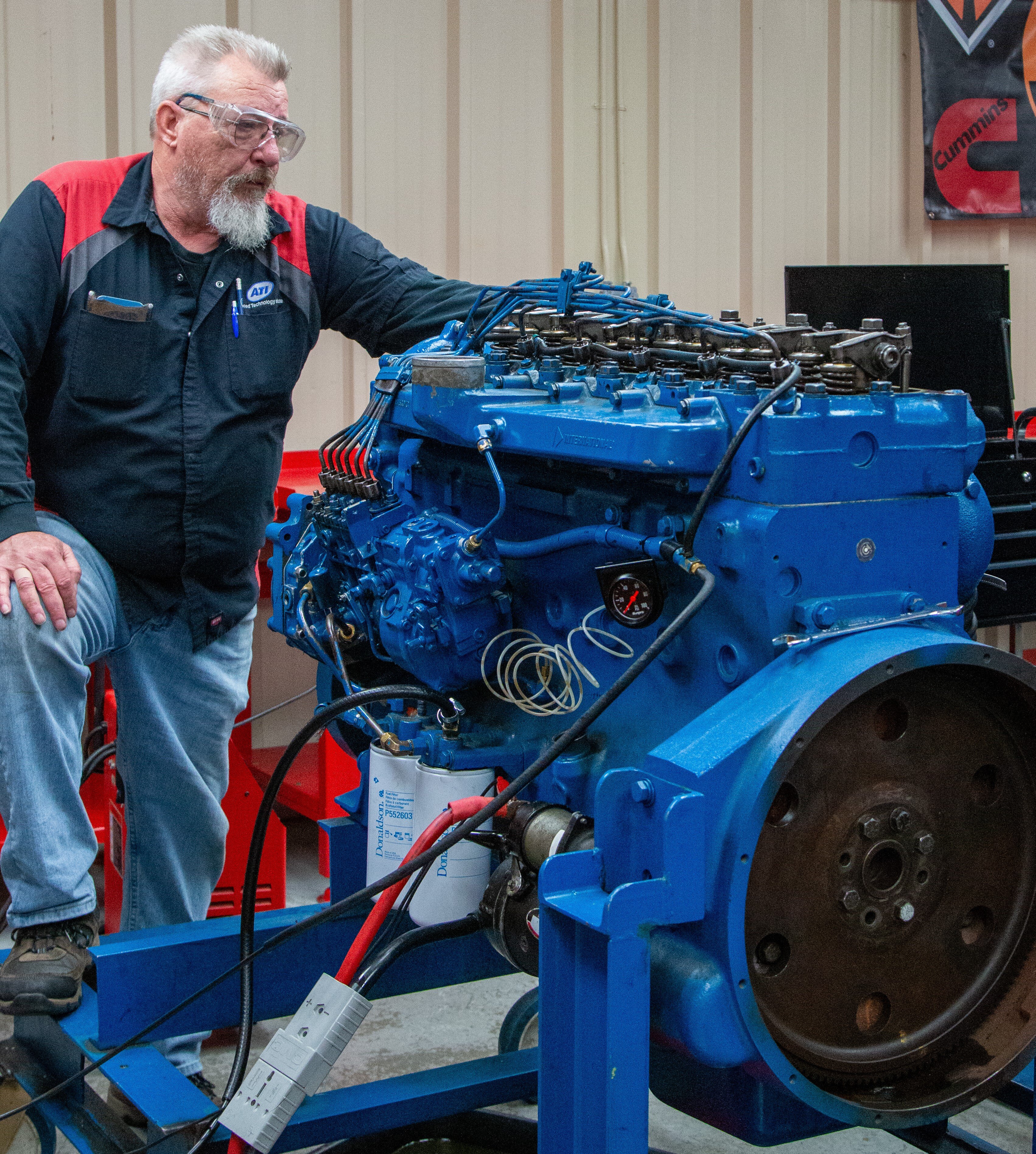Training to Be a Diesel Mechanic: Everything You Should Know
.jpg)
Skilled blue collar jobs are in extremely high demand across the United States. While the American economy has shifted to services, we still are one of the world’s leading manufacturing and resource extracting nations, and there are simply not enough people doing those jobs. Long story short, becoming a diesel mechanic could be a lucrative decision.
Even better, being a diesel mechanic can also be an interesting career! There is a huge variety of different diesel powered vehicles fulfilling all kinds of roles, all of which need people to maintain them. Not only that, but diesel powered vehicles operate in every corner of the Earth, so if you’re looking for a job that might have the option to travel or move permanently, this could be a good option.
Where Do Diesel Mechanics Work and What Do They Do?
Diesel powered vehicles are the workhorses of industry and commerce. Ships, large trucks, and construction vehicles all run primarily on diesel fuel, as do many portable power generators. As long as shipping and construction exist, there will be demand for diesel powered vehicles on land and sea, and that means demand for diesel mechanics.
Diesel mechanics might find themselves working on anything with a diesel engine, which could include:
- Seagoing and freshwater diesel powered ships and boats
- Aircraft support vehicles and equipment
- Farm equipment like tractors, harvesters, and generators
- Construction equipment and vehicles like diggers, bulldozers, dump trucks, mixers, and graders
- Commercial vehicles like tractor trailers and other large trucks
What’s the Job Outlook for Diesel Mechanics?
 With such a high demand, the income potential for diesel mechanics is strong, and the unemployment rate for diesel mechanics is very low—only 7.9% according to the Wall Street Journal, well below the US overall unemployment rate of 5.0%. According to the BLS, 250,800 diesel service technicians are currently employed, and that number is projected to grow by 9% per year for at least the next seven years. Pay is pretty good too; the BLS states that diesel service technicians earn, at median, $42,320 per year, or $20.35 per hour.
With such a high demand, the income potential for diesel mechanics is strong, and the unemployment rate for diesel mechanics is very low—only 7.9% according to the Wall Street Journal, well below the US overall unemployment rate of 5.0%. According to the BLS, 250,800 diesel service technicians are currently employed, and that number is projected to grow by 9% per year for at least the next seven years. Pay is pretty good too; the BLS states that diesel service technicians earn, at median, $42,320 per year, or $20.35 per hour.
The sectors that employ the most diesel mechanics according to the BLS, in order, are truck transportation service companies (18%), the government itself (10%), diesel repair and maintenance services (9%), motor vehicle, parts, and supply companies (8%), and the manufacturing industry (5%), accounting for 50% of all known diesel mechanics in the country. The other 50% is spread across the rest of the diesel powered landscape. However, most recently minted diesel mechanics will also be looking at exactly those jobs, so it might not be as hard as you would expect to find employment in one of the smaller diesel industries like luxury yachts or power generators.
What Do Diesel Mechanics Learn in the Classroom?
Becoming a diesel mechanic takes a decent amount of classroom education that covers how diesel engines work, how they are built, how diesel fuels work, and their usual points and causes of failure. Our Automotive Diesel Technology diploma program combines our Automotive Technology program with the core requirements of the Heavy Vehicle Technology program, which produces graduates with an extremely versatile skill set that prepares them for work on diesel engines from the smallest of passenger vehicles up to gigantic oceangoing vessels.
On the Job Training Means that Your Education Doesn’t End at Graduation
Like any hands-on career, you receive on the job training for your position, whatever it is, from day one. Because there are so many different specialties that a diesel mechanic could have, no school can teach you everything you might encounter. However, they will teach you how to learn on the job through hands-on training. That matters at least as much as what you learn in the classroom, because diesel technology is constantly evolving and improving. What is commonplace right now might not be in every diesel engine 50 years from now, so it’s critical to know how to learn about a new system.
I enjoyed my time here at ATI I learned a lot of good information from a lot of good people. The staff there is great and they really care about you the craft. I find that that’s the greatest way to go.
Posted by Josh Green on Friday, August 14, 2015
Study to be a Diesel Mechanic at ATI!
Our training program prepares students for any entry level diesel mechanic position and gives them enough hands on training that they may succeed in any diesel service role. In addition, by having taken all the courses in our general Automotive Technology Program, graduates of our Automotive Diesel Technology program could be able to find work in automotive shops and other roles that might not have to be entirely diesel focused. Choosing to become an automotive diesel mechanic at the Advanced Technology Institute could really be a career making decision. If you’re interested or already dead set on becoming a diesel service technician, learn more about ATI’s Heavy Vehicle Technology with Service Management (AOS) program TODAY!
DISCLAIMER – Advanced Technology Institute (ATI) makes no claim, warranty or guarantee as to actual employability or earning potential to current, past or future students or graduates of any educational program offered. The Advanced Technology Institute website is published for informational purposes only. Every effort is made to ensure the accuracy of information contained on the AUTO.edu domain; however, no warranty of accuracy is made. No contractual rights, either expressed or implied, are created by its content.
For more information about Advanced Technology Institute or any of our programs click here: http://www.auto.edu/ or http://ow.ly/VoydP.
Industry Knowledge
Welcome to the Advanced Technology Institute's Blog, your resource for industry insights and discussions on technologies shaping the future of automotive, heavy vehicle, hvac, welding, and other related career paths.
Explore how ATI's curriculum and hands-on learning opportunities can propel your career in the tech-driven world.

.jpg)

.jpg)